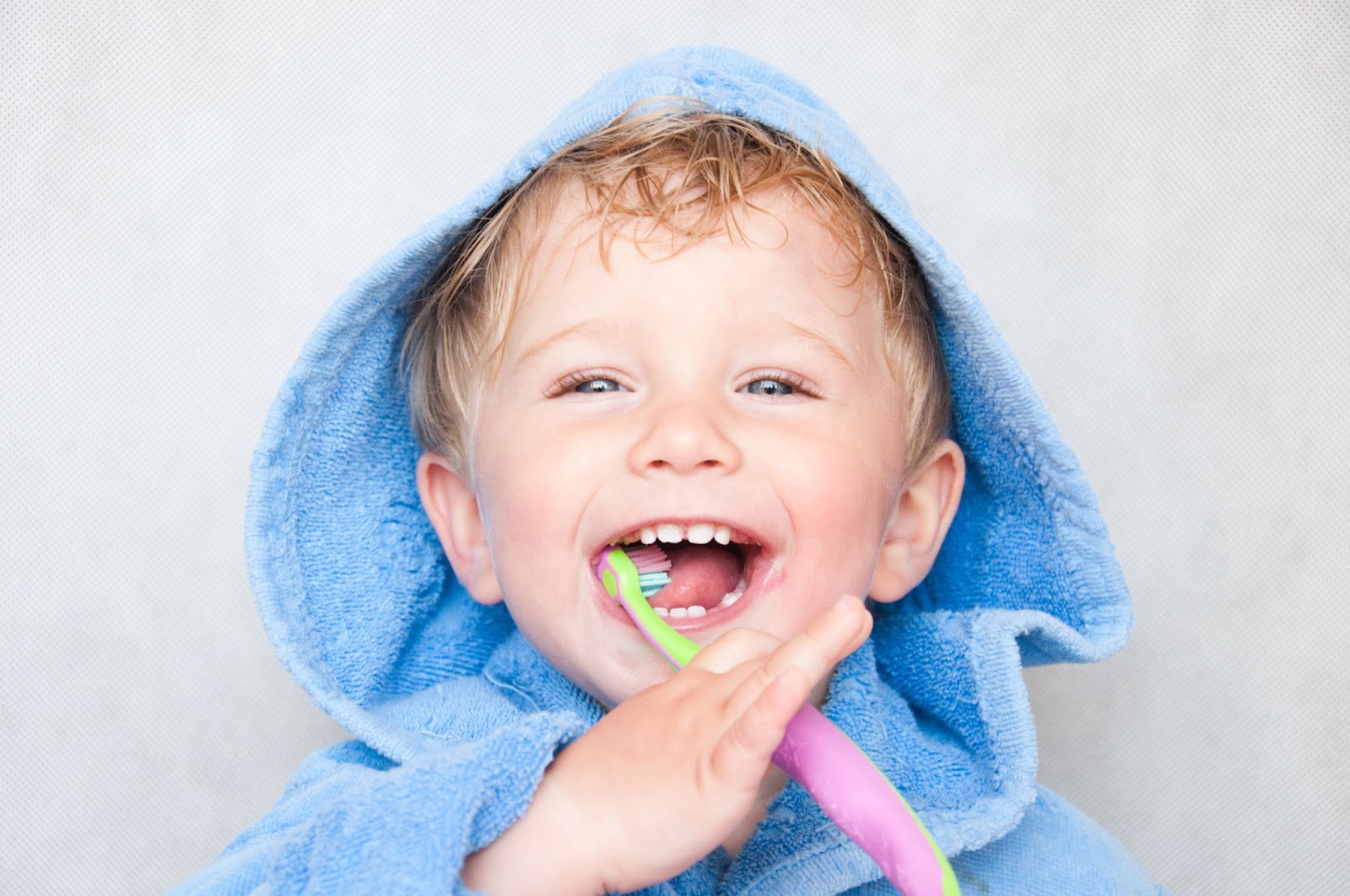What To Do When Plaque Builds Up on Baby’s Teeth

Did you know that 42% of Australian children between the ages of 5 and 10 have had cavities in their baby teeth, and 25% have untreated tooth decay?
These figures are an alarming representation of the risk of not taking care of your child’s oral hygiene and diet from a young age. A child’s oral care should ideally begin at 3 months, even before the first tooth appears. This involves a gentle cleaning of their gums with a damp cloth or gauze twice daily. Dental checkups are recommended from about 18 months onwards. .
Taking care of your little one’s teeth from a young age helps avoid plaque buildup on a baby’s teeth, protecting him from the risk of tooth decay and future dental treatments. If you’re worried about the hard plaque on baby teeth and how to avoid it, we can help.
We’ve put together a useful guide to educate you about what is plaque buildup on baby teeth, its risks, and how to prevent it, along with essential tips and precautions. Read on to find out more.
What is a Plaque on Baby Teeth?
Plaque is a sticky, invisible film that forms on the teeth surface because of the sugars found in food and drinks. When the sugar is left on the tooth surface, bacteria in the plaque build up produces acids which attack the teeth enamel and lead to dental caries or tooth decay.
Dental plaque on baby teeth is a thin layer of bacteria that can form on the surface of teeth. It is a sticky, colourless substance that can contain bacteria, food particles, and saliva. Plaque can form quickly on teeth and the presence of sugar creates acid which damages the tooth enamel. Since the enamel of a baby tooth is thinner than the enamel on adult teeth, the decay can progress quicker leading to pain and infection more quickly.
How long does it take for plaque to start forming on the baby’s teeth?
Tooth decay in children can start as early as when their first tooth appears. The usual causes of tooth decay in very young children can be caused by leaving the feeding bottle in the mouth when they’re sleeping, applying sweet things such as honey or syrups on their pacifier or prolonged night time breastfeeding.
It can also be passed on by parents or caregivers when they taste-check their food or its temperature or put it in their mouth before feeding. Lastly, the most important thing is to maintain good oral hygiene from day one. This minimises the risk of plaque buildup, ensuring that your babies have a healthy baby and permanent teeth when they erupt.
Danger of tooth plaque
Plaque buildup can be dangerous if left unchecked. This is why it’s essential to know the signs of plaque buildup and take the necessary steps to remove it before it develops into dental caries.
The first signs of plaque buildup include white marks on the teeth near the gum line (tartar plaque) and yellow plaque on baby teeth which can quickly progress into tooth decay with brown or black teeth. e. Plaque buildup on baby teeth can be removed at home with good daily brushing using a fluoridated toothpaste. Cavities will have to be treated by a dentist.
Some of the dangers of tooth uncontrolled plaque build up in baby teeth include:
Tooth decay
Plaque buildup, if ignored, can quickly progress into tooth decay. The sugar acids attack the tooth enamel, forming holes and cavities that turn into a blackish-brown colour. The decay spreads onto healthier teeth if not treated and can be dangerous for the teeth that have yet to erupt.
Gingivitis
Gingivitis is an inflammation of the gums caused by plaque buildup at the gum line. Symptoms include red, swollen, and tender gums, bad breath, and bleeding while brushing or flossing in severe cases. Treatment usually involves a thorough dental cleaning and improved oral hygiene practices to reduce plaque buildup.
Tips to Minimise Plaque Build-Up on Baby’s Teeth
There will always be plaque buildup on the baby’s teeth. But it can be minimised to prevent buildup and progress into tooth decay.
Here are some tips to help you minimise plaque buildup on baby teeth:
Things to avoid
A controlled diet is essential for a baby’s physical and oral health. Three to five healthy and nutritious meals a day with a short mealtime of about 40 minutes helps prevent plaque buildup. Shorter meal times ensure the teeth don’t have prolonged exposure to food, thus reducing plaque buildup.
Some of the things you should avoid:
- Carbonated and sugary food and drinks
- Extended bottle or breastfeeding at night time
- Sweetened milk or juices
- Putting sweet substances on their pacifier, such as honey
- Dried fruits
Regular dental hygiene
Regular hygiene is a must for both children and adults to protect their teeth and gums. Since younger children cannot brush their teeth properly, it’s best to teach and supervise them during brushing until the age of 8.
You should use a small amount of adult-strength fluoride toothpaste as baby toothpaste does not have enough fluoride. It is far more effective to use a tiny amount of stronger concentration toothpaste (adult strength), rather than a large amount of weak toothpaste. The amount we recommend to apply on the toothbrush would be less than half a grain of rice. The smaller the amount, the better. Since kids take a while to learn to spit properly, it’s most likely that your child will be swallowing most of the toothpaste that’s applied to their brush. Toothpaste is like a topical cream that makes the tooth enamel harder. It actually doesn’t make the teeth any cleaner. It’s more akin to moisturiser that you use to protect your skin after washing your hands, rather than soap that cleans the skin. Natural toothpaste which doesn’t contain fluoride is not effective and does not do anything.
For children with two front upper and lower teeth, you can use a damp cloth or a finger with a tiny bit of toothpaste if your child doesn’t like the feel of a toothbrush. However, a toothbrush is the most effective tool for cleaning the teeth.
Visit the Dentist Regularly
Dental checkups should begin from roughly age 18 months onwards. Regular dental checkups ensure that oral problems can be detected early and prevented, saving your child from tooth decay and the pain of cavities.
Let’s keep your Baby’s teeth Free of Plaque Buildup!
Protect your child’s oral health by practising good oral hygiene and habits from an early age. This ensures your children are aware of the importance of protecting their teeth and gums, experiencing fewer dental problems in the future.
We offer a full range of family dental care services focusing on preventive dentistry to help your children maintain a full set of healthy white teeth for a happier, more beautiful smile. Our friendly and caring Blackburn dentists are always available to answer your queries and assist you with any dental help you may need for your children.
Give us a call to book an appointment or a consultation today.


